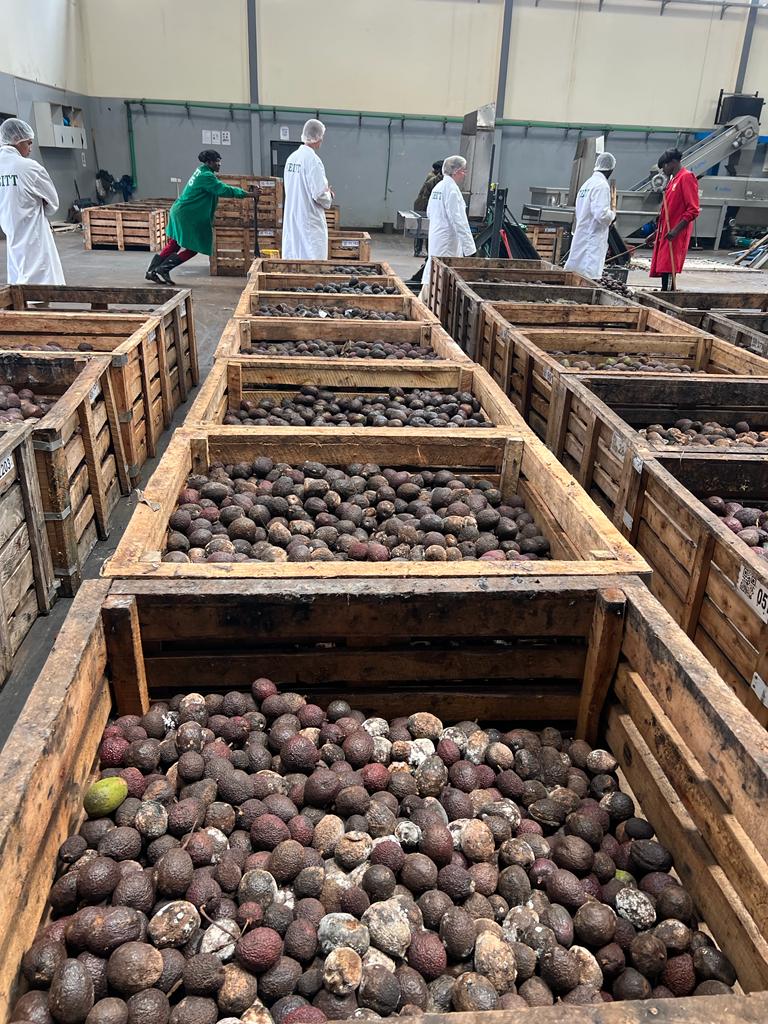Netherlands Food Partnership: Transforming Food Systems Together
NABC member the Netherlands Food Partnership (NFP) brings together organisations from the private, public, civil and knowledge sector to jointly accelerate food system transitions in low- and middle- income countries across the world.
Collaborating with each other is crucial to the Dutch. It is, in fact, rooted in the Dutch DNA as it stems from a long tradition to make decisions based on consensus and solving problems via dialogue in partnerships as anchored in the famous Polder model. Jointly managing water, working in agricultural cooperatives and a tradition of cooperation between public and private organisations has proven successful for the Dutch. It is also a necessity to tackle one of the biggest challenges of this century: global food and nutrition security.


Ivo Demmers, incoming Executive Director of the Netherlands Food Partnership (NFP), is equally convinced: “The expertise of working in partnerships is what sets us apart from other countries and societies where there is less history in working together. As NFP, we feel that we must share our knowledge and experience to foster the capacity of partners in low- and middle-income countries in Africa, Asia, and Latin America to transition towards sustainable food systems.”
The food systems approach aims at sustainable solutions for a sufficient supply of healthy food. It covers the entire process of producing, processing, distributing, and consuming food. It is broader than the value chain concept, as it includes socio-economic and environmental dimensions. A sustainable food system is one that can provide healthy and nutritious food for all while minimising negative impacts on the environment and promoting social and economic equity.
NFP is convinced that the transition to sustainable food systems can only succeed with functioning partnerships. Ideally, these partnerships include four types of organisations: government, private, civil society, and knowledge institutes. Here, NFP acts as a convener of partnerships that are shaped around a particular food system challenge. In these partnerships, organisations such as research institutes, farmer organisations, technology suppliers, retailers, input suppliers, government, investors, and financiers join forces to develop sustainable food systems. These partnerships can be effective on local, regional, or global levels.
An exemplary collaboration is taking place in Kenya, addressing the critical issues of food loss and food quality. These problems significantly impact the supply of domestic dairy products and the export of avocados to the Netherlands. NFP supports the FORQLAB consortium in its action research efforts within both sectors. FORQLAB identifies necessary technical and governance interventions that enhance the production of safe products and reduce food losses. To achieve this, FORQLAB partners with two Kenyan universities, namely Meru University and Egerton University, along with four Dutch universities of applied sciences: Van Hall Larenstein, HAS Green Academy, InHolland, and NABC member AERES. Further, FORQLAB works with seven Kenyan farmer cooperatives and their business partners in the avocado export and domestic dairy sectors, including Greenport, Satori, Fairtrasa, and Ante B.V. On behalf of NFP, the local cooperatives were assessed by Agriterra – an international specialist in cooperative development – to enable the involvement of national stakeholders in the inception phase. The action research by FORQLAB will yield valuable outcomes including teaching packages and training courses focused on food loss and food quality for students, farmers, and their business partners.

Ivo sees potential for future food partnerships involving the NABC and its members from the Dutch private sector. He further encourages NABC members to reach out to identify demands where NFP and the Dutch private sector can be of help to accelerate food system transitions in Africa. “There is neither one single solution nor one single entity that can bring the all-encompassing solution to food system challenges. Only through partnerships can we make it work,” emphasises the Director and concludes with his personal motivation: “That’s why I stepped into the world of food systems to effectively build the partnerships needed for global zero hunger.”
For more information visit www.nlfoodpartnership.com and www.nfpconnects.com.


